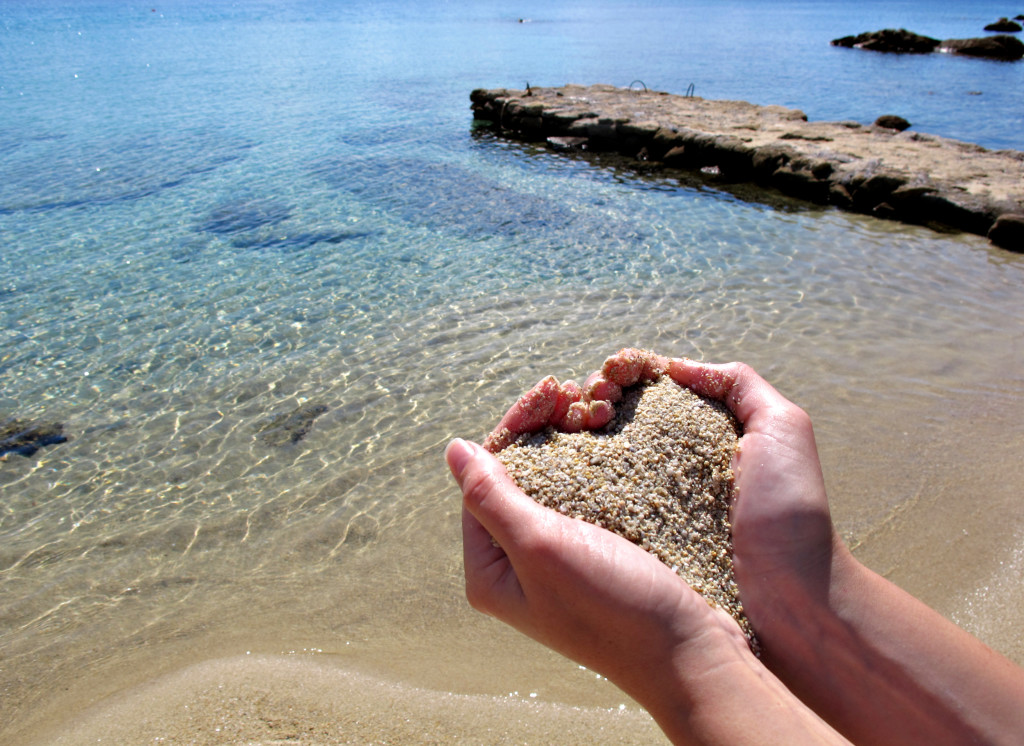It’s true that the Yuletide is a time for giving, but that doesn’t mean giving has to be confined to this time of the year. Dr. Wayne W. Dyer had an experience while in Turkey that changed his attitude to one of gratitude.
On the recent Hay House Mediterranean cruise, “In the Wake of Our Spiritual Ancestors,” we visited historic sites of the ancient civilizations of Greece and Rome. One highlight of the trip was a stop at the ruins of Ephesus on the coast of Turkey, where I was scheduled to lecture. I’ll tell you about an experience I had there that illustrates the importance of our power to choose who we are.
That day in Ephesus there were many tourists in the area and, thus, a long line for the bathroom. Once inside I saw that there was a man handing out little pieces of paper to the people after they washed their hands. My first thought was an immediate throwback to a younger version of myself. “What is this guy doing in this toilet and is he expecting me to give him a tip? I don’t want to have to give someone a tip for just going to the bathroom. I just had to pee. I don’t think I should have to pay for that. I don’t want to have to deal with this. I don’t want to have to look at him. Here’s someone who’s trying to take advantage of me. He wants a coin. I don’t have any coins.” These thoughts flew into my head spontaneously. I took the piece of paper and walked out.
I got about ten feet away and then realised what I had done. “Oh my God, who knows what this man’s story is? He has decided to go into a toilet where tourists come and go all day long. (You can’t imagine what it smelled like in there.) “And he stands there all day just handing out little pieces of paper perhaps to earn money to feed his family. Who knows what’s going on in his life? And here I am judging him.”
Thoughts born of anger, judgment and fear are habitual memes that fill our heads if we let them. Where they came from doesn’t matter. What matters is that we recognise them. There was a time when, after thinking those habitual thoughts, I would correct them and say to myself, “the next time that happens….” But now what I did was take immediate action. I went back into the bathroom. I had a 20-euro note. I reached out and put it into the man’s hand. “God bless you,” I said. “It’s really thoughtful of you to just hand me a piece of paper after I washed my hands.”
This is the healing power of divine love as we open ourselves to it. We’ve all developed mental habits of fear, judgment, getting angry at people for no reason, and feeling threatened. With the working out of divine love, we start seeing these habits for what they are; then we start correcting our thoughts. Finally, we start acting on the corrections. We begin to see the unfolding of God in everyone.
I slipped that day in Ephesus. The rest of that trip, when I saw people like the man I met, I had more and more of an outpouring of love. I started giving away coins to remind myself how blessed I am to even have a toilet let alone to have someone inside handing me paper. That’s the shift. You decide you are a being of divine love and every time you have a thought that is not consistent with that assessment of who you are, you correct the thought and then you go back and correct the action.
A habit is a habit until you become aware of it. Ask yourself, “Is this how I choose to react to people who are asking me for help?” Choose love over fear until it becomes your habit.
“In the poor, we find Jesus in his most distressing disguises.” –Mother Teresa
This article was originally published on www.HealYourLife.com
How can you make love your habit?
Dr. Dyer’s experience that day in Ephesus could’ve gone by unnoticed, and we all block out experiences like this everyday. So here are some tips to make love your habit.
- Open your eyes. There are people all around us that need our help, so don’t block them out. Of course you can’t give everything to everybody, but be sure to buy the occasional Big Issue, or buy a cold, homeless person a coffee.
- Remember you manners. You may remember to say thank you to your friend for having you over for dinner, but remember to thank strangers for small kindnesses too, like holding a door open, or saying “bless you” when you sneeze.
- Do something special. Next time you leave the office for lunch, come back with some biscuits for your colleagues. They will really appreciate the gesture, and it will make them think of you fondly.




